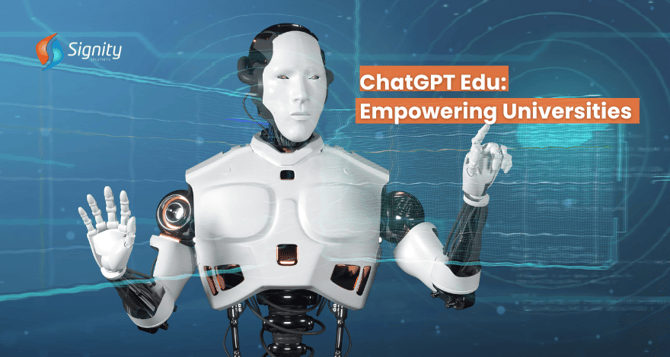OpenAI Unveils ChatGPT Edu: Bringing AI Responsibly to University Campuses
OpenAI's ChatGPT Edu brings advanced AI to universities for learning & research. Analyze data, write citations, & get coding help - all in a secure environment. This is a big step towards AI-powered education, but responsible use and bias considerations are key.

OpenAI, a leading research and development company in the field of artificial intelligence, has launched ChatGPT Edu, a tailored version of its popular ChatGPT tool designed specifically for universities. This new offering aims to empower educational institutions to responsibly integrate AI into various facets of student learning, faculty research, and campus operations.
Cutting-Edge AI Technology
ChatGPT Edu leverages the capabilities of OpenAI's GPT-4o language model, the latest iteration of their groundbreaking ai ChatGPT technology. Known for its advanced reasoning, coding, and data analysis abilities, GPT-4o represents a significant leap in chatgpt development. This powerful AI engine allows ChatGPT Edu to go beyond basic conversation, offering functionalities specifically suited for academic environments.
Features Designed to Enhance Learning and Research
Enhanced Reasoning
ChatGPT Edu can analyze information across various formats, including text and visuals, allowing for a deeper understanding of complex subjects. Students can use it to explore historical documents, analyze scientific papers, or delve into philosophical debates.
Data Analysis Powerhouse
Students and researchers can leverage ChatGPT Edu's data analysis tools to explore and interpret complex datasets, fostering a data-driven approach to learning and discovery. This aligns perfectly with the growing emphasis on data science across various academic disciplines.
Coding Companion
As universities grapple with the increasing demand for coding skills, ChatGPT Edu can act as a valuable companion for students. The tool offers assistance with coding tasks, providing explanations, debugging help, and suggesting code improvements. This can significantly accelerate the learning process and empower students to become more confident coders.
Research and Writing Support
The time-consuming tasks of research and writing can be streamlined with ChatGPT Edu. Students can utilize it for literature reviews, document summarization, and even generating citations. This frees up valuable time for students to focus on critical thinking, analysis, and argument development.
Customization Options
Universities can unlock the full potential of ai ChatGPT by creating custom-trained GPT models using their own datasets. This allows for a more personalized learning experience tailored to specific courses or research areas. Imagine an Economics department training a custom model on financial data or a History department focusing on historical texts. Such customization can significantly enhance the learning experience.
Secure Collaboration Features
Understanding the importance of data privacy and responsible AI use within academic institutions, ChatGPT Edu prioritizes security and control. It offers features like group permissions, single sign-on (SSO), and Secure Cloud Information Management (SCIM) to ensure data privacy and responsible AI use within university workspaces.
Building Upon Success
The launch of ChatGPT Edu follows successful pilot programs at renowned universities like Oxford, Wharton, and Columbia. These programs demonstrated the potential of ChatGPT Enterprise, an earlier version based on the earlier stages of chatgpt development, to enhance academic experiences. OpenAI has built upon this success, creating a more affordable and education-focused version with ChatGPT Edu.
Conclusion
OpenAI's ChatGPT Edu marks a major step in bringing AI to universities. This secure platform empowers students, faculty, and researchers through advanced AI capabilities.
 However, as with any new technology, responsible use and addressing potential bias remain crucial considerations.
However, as with any new technology, responsible use and addressing potential bias remain crucial considerations.


%201-1.webp)


.png?width=344&height=101&name=Mask%20group%20(5).png)








-1.png?width=352&name=microsofts-recall-feature%20(1)-1.png)
.png?width=352&name=microsofts-recall-feature%20(30).png)








